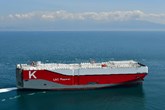Japanese trading houses on the prowl
Published by Joseph Green,
Editor
LNG Industry,
Reuters are reporting that Japan’s trading houses are scouting for assets as they enjoy their best profit outlook in six years, driven by higher prices for commodities from metals and coking coal to oil and natural gas.
Equipped with a nearly US$50 billion war chest, trading houses are looking to bolster their global commodity supply chain networks, eyeing gas fields in Australia, oil in Iraq and coal and copper assets.
But – still smarting from huge writedowns in the last investment cycle – big debt-fuelled acquisitions look to be off the agenda, with the focus on greenlighting undeveloped assets, taking bigger stakes in existing projects, and trading up to better quality operations.
Known as shosha in Japanese, trading houses led by Mitsubishi Corp and Mitsui & Co fulfil a quasi-national role by importing everything from oil to corn to sustain the country’s resource-poor economy.
Together with Itochu Corp, Sumitomo Corp and Marubeni Corp, the five major trading houses reported record April-December net profits this month, with many upping their full-year forecasts.
Combined, they expect annual net income for the year to end-March, 2018 of 1.88 trillion yen (£12.4 billion), the most since 2011/12 financial year.
Mitsui this month won a bidding war for Australia’s AWE Ltd with a US$470 million offer that will give make it operator and 50% owner of the promising Waitsia gas prospect.
Analysts described it as a low-risk investment, while Mitsui said becoming operator of a gas field for the first time would bolster its credentials to bid on other Australian gas assets.
Mitsui has been expected to step up its spending in energy and metals, where it is the strongest of the top five trading houses.
The five trading houses combined had about US$48 billion in cash and short-term investments as of end-March 2017.
Still, it was just two years ago that Mitsubishi and Mitsui posted their first ever annual losses, while in that same year to March 2016 the five houses combined wrote-off about 1 trillion yen after the commodities downturn of 2014 – 2015.
They have since staged a recovery, also visible in the stock market where since 2015, seen as the lowpoint of the overall commodities downturn, they have outperformed even Glencore.
Despite this, analysts say the Japanese traders remain cautious.
Read the article online at: https://www.lngindustry.com/liquid-natural-gas/15022018/japanese-trading-houses-on-the-prowl/
You might also like
‘K’ Line receives LNG-fuelled car carrier
An LNG-fuelled car carrier with a capacity of 6900 vehicles has been delivered to Kawasaki Kisen Kaisha, Ltd.

